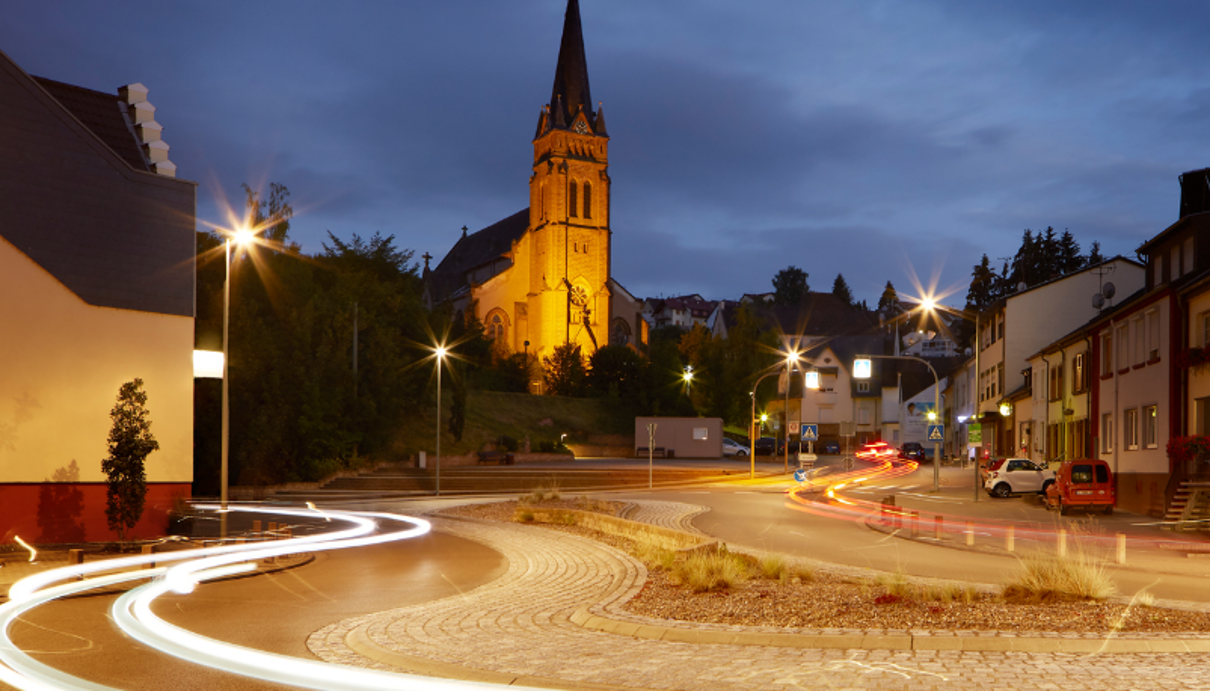Page content
Guest article: From Wadgassen to SMARTgassen

The municipality of Wadgassen in Saarland is looking for and finding ways to slow down demographic change; because like many other municipalities, we are also struggling with the challenges of rural areas. With my goal of becoming the most digital municipality in Saarland and developing from a purely residential community into a community of the future, new (pilot) projects are constantly being implemented in Wadgassen and existing structures are being rethought.
In the beginning there was the idea
When we invited the executives of the administration and a few other employees to a "Smart City" workshop in October 2020, none of us had any idea how much the topic of digitization would gain in importance in the coming years. At the workshop, we asked ourselves the question "What should local government look like in 2050?"
But the Corona pandemic showed us all how fast-moving the times we live in are, and before you knew it, we were in the middle of an unprecedented turbo-digitization; because the pandemic acted on digitization like an accelerant.
The process of change
Today, we have come a long way in the municipality of Wadgassen. Mobile working, cross-team and cross-office communication tools, or video conferencing are part of employees' everyday lives and have long since ceased to be questioned. But all this is just the beginning, a partial aspect of the "big picture". The question arises as to how we, as a supposedly small municipality, can become a pioneer in the area of digitization and smart administration.
The key is a well-positioned team that coordinates the process, competent external consulting that accompanies our development from the outside, and of course the motivation and will of our managers and employees. The municipality of Wadgassen has thus initiated a large-scale change process. In addition to the obvious goal of further developing digitization, this change process also has agile work structures, smart administrative processes, and human resources and organizational development as its specifications.
Community of the future
Like many other rural communities, the municipality of Wadgassen is struggling with a steady decline in population. To counteract this, we need the influx of young families who can feel at home here and put down roots. For this reason, there has long been fierce competition between the municipalities for the citizens of the future. Recruiting" residents therefore includes good childcare and modern educational facilities, an infrastructure that provides playgrounds, offers local shopping opportunities and conveys an urban attitude to life, and of course a smart way of dealing with citizens. To achieve this, we need alternative forms of mobility, such as car sharing, rental bikes and mobility on demand. Digital infrastructure, modern and intuitive citizen services. It is important to consider these aspects in all decisions, because this is how these structures can be built up piece by piece. Initial trends in the right direction can already be seen in Wadgassen. Thanks to the modern data platform of the Berlin start-up "Polyteia", which we were the first to use as a pilot municipality, we can view population trends in real time and see that we have already been able to slow down demographic change. In some districts, the birth rate even exceeds the death rate, and increasing influxes of young families are significantly slowing the population decline in the municipality of Wadgassen.
Smart city is the answer
But "personnel recruiting" has also become a challenge for the public sector. We must also continue to develop as an employer and remain attractive to our current and new employees, especially from Generation Z. This includes a modern and mobile workplace, as well as agile work structures and flexible working hours. Continuous training for managers, as well as a direct line to the departments. With the development of a leadership mission statement and a corporate mission statement, with regular team workshops and closed-door meetings of managers, the provision of service e-bikes and e-scooters, we have laid important initial foundations for the future.
Large cities have long since ceased to have a patent on the topic of digitization and the term smart cities. Rural communities like Wadgassen can seize their opportunity as a Smart Country or Smart Region; because the future is change - and the community of Wadgassen has an appetite for the future!
About the author: Sebastian Greiber was born in 1980 and has been mayor of the municipality of Wadgassen since 2014. In 2019, he was confirmed with 72% for his 2nd term until 2029. In 2018, together with young mayors, he submitted a reform paper for the Saarland's IT special-purpose association eGo-Saar and subsequently played a leading role in supporting and driving forward the reform process. Since 2022, he has been chairman of the supervisory board of the newly established eGo-Saar, which includes all of Saarland's municipalities, cities and administrative districts. The main goal of the association is to standardize municipal IT structures.
Become an exhibitor at #SCCON25
As a driving force for the future of digital administration and for equal digital living and working conditions in cities and rural areas, the Smart Country Convention is a must for all stakeholders who actively advance the digital transformation. Are you interested in advancing the digitization of our cities and municipalities too? Join us and position your company or municipality as an expert in digitalization in the public sector.



